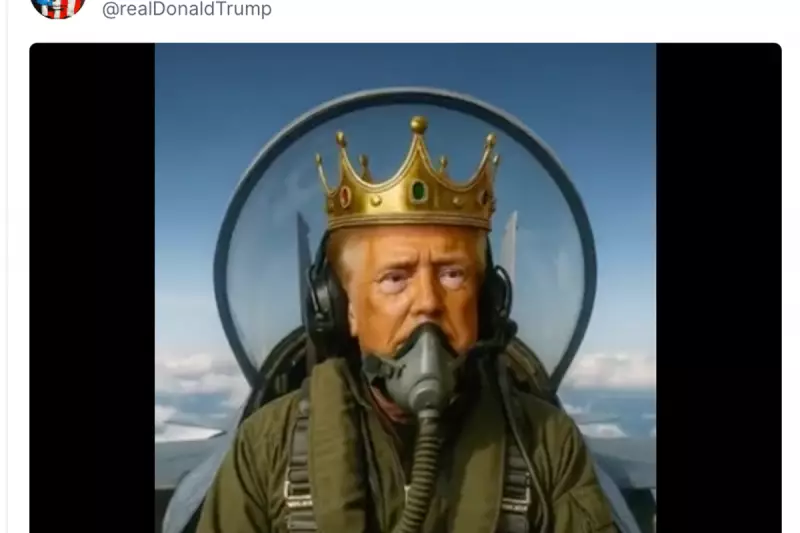
In a striking development that blends technology with political messaging, former President Donald Trump has shared an artificially generated video on his Truth Social platform featuring a photorealistic version of himself delivering a powerful message: "There are no kings in America."
The AI-Generated Declaration
The sophisticated AI creation depicts a composed Trump stating firmly: "There are no kings in America. We have no king but God." This digital proclamation comes at a particularly sensitive time in American politics and Trump's own legal circumstances.
Timing and Legal Context
The video's publication coincides with ongoing legal debates surrounding presidential immunity. Trump's legal team is currently arguing that former presidents should enjoy immunity from criminal prosecution for official acts conducted while in office.
This position faces significant scrutiny from political opponents and legal experts who view it as contradictory to the video's anti-monarchical message. Critics argue that seeking immunity effectively positions a president above the law, creating a system not dissimilar to monarchical privilege.
Platform Strategy and Messaging
Trump's choice to deploy this message through his own social media platform, Truth Social, demonstrates his continued strategy of bypassing traditional media channels. The use of advanced AI technology to create convincing digital content represents an emerging trend in political communication that experts say could reshape future election campaigns.
Public and Political Reaction
The video has sparked intense debate across political spectrums, with supporters praising its patriotic message and critics highlighting what they see as hypocrisy given Trump's legal positions. Legal scholars note the tension between the video's constitutional message and the immunity arguments being made in court.
As AI technology becomes increasingly sophisticated and accessible, political observers warn that such content could potentially mislead voters about candidates' positions and create confusion in the political landscape.





